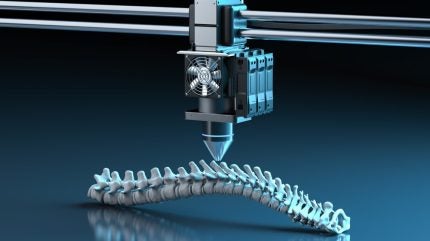
US-based NanoHive Medical has closed $7m in Series C financing to develop and commercialise its 3D-printed titanium spinal interbody fusion devices.
The funds will be used to expand its US team, penetrate international markets, and expand the company’s strategic partnerships.

Discover B2B Marketing That Performs
Combine business intelligence and editorial excellence to reach engaged professionals across 36 leading media platforms.
NanoHive also plans to use the financing to expand its portfolio of soft titanium spinal interbody fusion devices “by way of product line extensions, product launches, and “smart” sensor implant delivery research and development”.
NanoHive’s soft titanium device portfolio consists of various spinal fusion devices. In January 2023, the US Food and Drug Administration (FDA) issued a 510(k) clearance for the Hive Standalone Cervical System. The implant system consists of a zero-profile design, interfixated with two self-tapping screws, as well as a cage and plate fixation option.
In April, NanoHive signed a supply schedule contract with the US Department of Veteran Affairs to supply its complete line of 3D-printed Hive interbody devices.
The spinal fusion orthopaedic device market is forecasted to grow over $8.9bn in 2030, as per a GlobalData market model. The interbody spinal fusion device segment will grow to roughly $4.2bn in 2030.

US Tariffs are shifting - will you react or anticipate?
Don’t let policy changes catch you off guard. Stay proactive with real-time data and expert analysis.
By GlobalDataMultiple companies have used 3D printing technology to formulate spinal implants. 3D printing offers various advantages, including customisation, reduced production costs, and quick turnaround, all of which are expected to propel the medical 3D printing market to generate $4bn in 2026, as per GlobalData analysis.
In May 2023, Tissium raised €50m ($53.8m) in Series D financing to develop a 3D-printed implantable device and on-demand activated adhesive for suture-less nerve repair. In November 2023, Vy Spine’s ClariVy OsteoVy PEKK Cervical IBF device received clearance from the FDA. The device was made using 3D-printed Oxford Performance Materials’ OsteoFab technology in an OsteoVy lattice structure.





